Psalm 77:1-3 "[...] I cried out to God with my voice--To God with my voice; And He gave ear to me.
"In the day of my trouble I sought the Lord; My hand was stretched out in the night without ceasing; My soul refused to be comforted.
"I remembered God, and was troubled; I complained, and my spirit was overwhelmed. Selah"
What does 'selah' mean? It shows up over 70 times in the King James version of the Bible. More in a Hebrew Bible, I'm informed. Three times it is found in the book of Habakkuk the prophet (in the third chapter [KJV]), the rest in the Psalms. What's the point of the word? Why is it there?
Psalm 3:1-4 "A Psalm of David when he fled from Absalom his son. LORD, how they have increased who trouble me! Many [are] they who rise up against me.
"Many [are] they who say of me, '[There is] no help for him in God.' Selah
"But You, O LORD, [are] a shield for me, My glory and the One who lifts up my head.
"I cried to the LORD with my voice, And He heard me from His holy hill. Selah"
According to the experts it may have a few meanings, though nobody is certain of its meaning. Wikipedia - http://en.wikipedia.org/wiki/Selah - says,
"Selah (Hebrew: סֶלָה, also transliterated as selāh) is a word used frequently in the Hebrew Bible, often in the Psalms, and is a difficult concept to translate. (It should not be confused with the Hebrew word sela' (Hebrew: סֶלַע) which means "rock.") It is probably either a liturgico-musical mark or an instruction on the reading of the text, something like "stop and listen". "Selah" can also be used to indicate that there is to be a musical interlude at that point in the Psalm. The Amplified Bible states Selah as "pause, and think of that"."Is either correct?
Is it a musical direction? Why would we assume that? Granted, many Psalms are addressed to the Chief Musician. But the writers of the Psalms were not musicians themselves. Nor was Habakkuk. So why would, for instance David, give musical directions in his Psalms?
Habakkuk was writing a Prayer in the third book. Okay, perhaps his prayer was meant to be sung. But nowhere does that prayer says so. So why a musical direction? No, in my mind the idea that Selah is a musical direction, or notation, is way off. Nor does it make too much sense to propose that it might mean to add a musical interlude at that point. That, too, makes little sense.
So what's left? That notion of Selah being 'an instruction on the reading of the text, something like "stop and listen," may be closer, if not right on the money. As The Mountain Retreat - http://www.mountainretreatorg.net/faq/selah.html - puts it,
"With all of these "experts" making such contradictory statements, one tends to wonder, "can we even really know what Selah means?" The answer to this question I believe is yes. And the answer really shouldn't be subjective or left to conjecture. Because there is much we can learn about this word from the original Hebrew in which it is written, from allowing the Bible to be its own dictionary, and from comparing scripture with scripture and allowing God to be His own interpreter. All of these things can give us a solid illustration of this word's true meaning.
Selah, [celah], is from the primary Hebrew root word [calah] which literally means 'to hang,' and by implication to measure (weigh). This is readily understood because in Biblical history, money, food and other valuables were 'weighed' by hanging or suspending them on a type of balance (the equivalent of our measuring scale) to determine their value. We find an example of this word [calah] as it is literally translated 'valued,' in the book of Job, indicating that which is measured."
Maybe that's a little too 'literary' or 'scholarly' for us? But the base meaning is clear. It is an instruction within the text. But the instruction depends on the actual text. So we need to use context as our guide.
As Doctor Gene Scott used to say, you can simply translate it as, "Think of that!" or, "Imagine that!" And the context tells you if the word, Selah, is used in a positive or negative way. It can be mocking, too, you know. So the context might translate Selah into something like, "Can you imagine how silly that is?" In some contexts it's easy to translate Selah into, "Imagine how awesome that is!"
But it can always mean the simplest of things, as in that root of the word. So Selah could just mean, "Weigh that idea." Or even, "Look at the value of that thought."
In some places the King James translators used a bit of whimsy, as they translated the very same word. And it became, in Lamentations 1:15, for instance, "The Lord hath trodden under foot all my mighty men in the midst of me: he hath called an assembly against me to crush my young men: the Lord hath trodden the virgin, the daughter of Judah, as in a winepress." Here, 'hath trodden under foot' is actually Selah, or the root Hebrew word 'celah'. The second instance of 'trodden' in this verse is, in fact, a different word, entirely, and means trodden.
(Yes, I know the King James translators did a wonderful job. But they did take liberties in places, and translated the exact same words and phrases, in different places, into different meanings. Thus, for example, you have the phrase in Genesis 1:2 'The earth was without form, and void;', yet the exact same Hebrew phrase can also be translated translated into, "And the earth became a waste and a desolation". Which gives an entirely different meaning to the phrase. And also goes a long way to explaining some of the phrases, and thoughts or ideas, found throughout the Old Testament. )
Again, from The Mountain Retreat,
"[...] Whenever we see this word in scripture, we should understand that the Lord is exhorting us to 'weigh' these things thoughtfully, and to reflect and consider in good sense judgment, what is 'really' being said.
And despite claims to the contrary, there is no substantive Biblical evidence that Selah is an interrupter to pause the music while voices continue, nor is there sound evidence that it is for the pausing of voices while the music continues. These ideas are based upon the conjecture and theories of it being a music stop. It is a presupposition rather than a well researched conclusion. But what we do know is that it is a word which means to weigh or measure. And in these contexts, to weigh the preceding words of God and wisely consider them. It is a signature exhortation from God for our thoughtful reflection and weighing of what we have just read."
Selah!



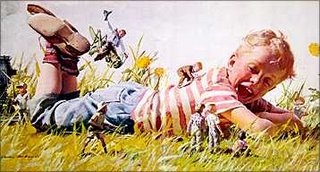

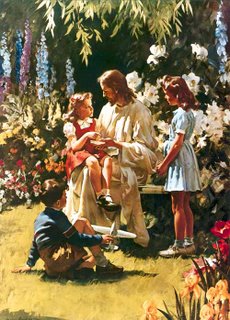
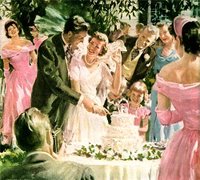
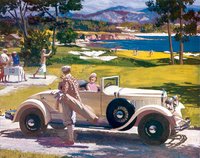
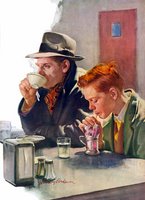





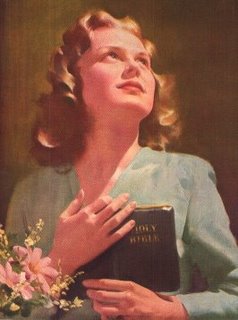










.jpg)




